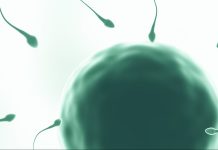Hair and libido loss are among the latest long Covid symptoms joining a plethora of other manifestations.
10% of the people affected by SARS-CoV-2 have been reported to develop long Covid symptoms lasting on average 4 to 12 weeks following the viral infection.
So far, medical scientists have identified several long COVID, including hair loss, reduced libido, chronic fatigue, breathing difficulties, muscle and articular aches, cough, headache, chest pain, altered taste and smell, digestive imbalances and many more.
Nevertheless, these were self-reported symptoms while the latest researches lacked a control group, so the aforementioned list might be limited.
But recently, UK researchers have conducted a large study published in Nature Medicine aimed at investigating the diversity of long Covid symptoms. 62 symptoms were discovered.
The data for the research was collected between January 31, 2020 and April 15, 2021 from 486,149 Covid-19 participants and 1,944,580 healthy controls not affected by the disease. After assessing age, sex, BMI (body mass index), social habits, smoking routine and co-morbidities, the team of researchers found that 62 symptoms were linked the SARS-CoV-2 viral infection.
New symptoms feature anosmia (loss of smell), sneezing, ejaculation difficulties, low libido, a hoarse voice, constant fever, anxiety, depression, insomnia, brain fog, rashes, with many f these manifestations more pronounced when compared to the first wave of the pandemic.
Women were found to be at an increased risk than men for long Covid. Similarly, people aged 30 to 39 years and the ones over 70, Black Afro-Caribbean descents, people with poor social interactions, smokers, overweight males and females, and individuals affected by co-morbidities were at highest risk of developing long Covid symptoms.
Dr. Shamil Haroon, clinical senior lecturer at the University of Birmingham’s Institute of Applied Health Research, explained what causes these manifestations:
“The mechanisms that cause long COVID are not well understood, and the list of hypotheses are quite diverse, including organ damage (e.g. lung scarring) from the acute infection, chronic inflammation, viral persistence, endothelial dysfunction, and blood clots, autoimmunity, mast cell activation, and many others.
“Long COVID is unlikely to be a single condition but rather several overlapping conditions that occur following SARS CoV-2 infection.”
Dr. P.J. Utz, professor of immunology and rheumatology at Stanford University, added:
“Almost certainly, multiple mechanisms underlie long COVID and in part explain the incredible heterogeneity. For example, intense inflammation during the initial illness can damage tissue, leading to long-term signs and symptoms. This may underlie some findings such as anosmia and pulmonary symptoms.
“Endothelial dysfunction and micro-clotting [have] been observed in acute illness. Activation of the immune system leading to inflammation and the development of autoantibodies is also likely to be important, as well as persistent viral infection. NIH’s large RECOVER study is actively pursuing all of these mechanisms.”
Nevertheless, according to Dr. Haroon, more research will be necessary in the future in order to reach a final conclusion.
“The limitations of our research include that we only considered symptoms that were reported to primary care services. We, therefore, cannot comment on the overall prevalence of these symptoms in the general population, since many people with long Covid may not necessarily report their symptoms to their general practitioners. […]
“We also used coded data from health records. Many symptoms will be recorded by clinicians as free text, which we did not have access to analyse”, he concluded.
Source: medicalnewstoday.com









